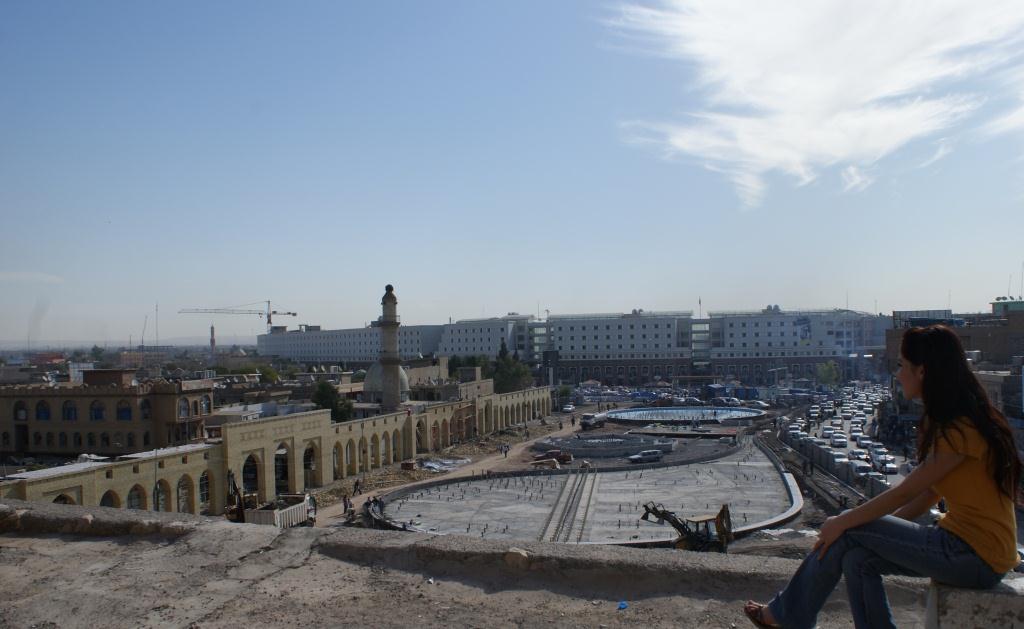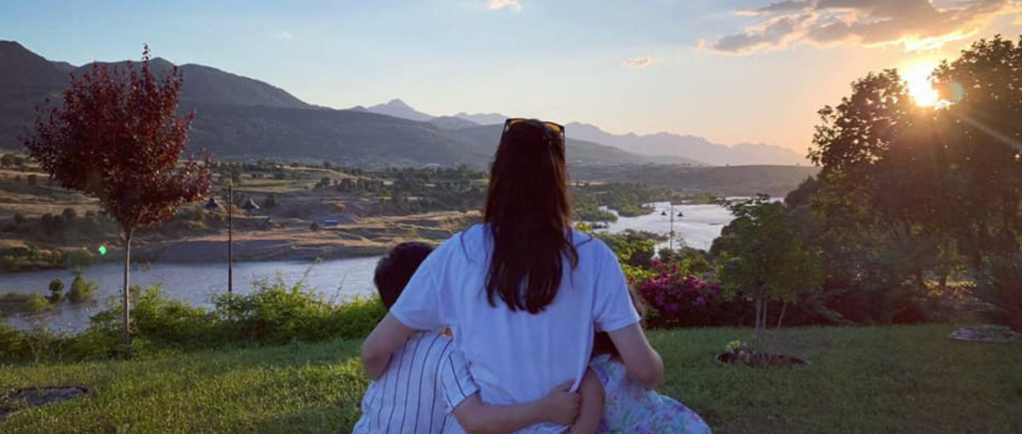Today, I once again visited the Qalat (Citadel), 15 years of visits, and today, the tea no longer tasted the same.

Each visit to the Qalat has been at a different chapter of my life. From a young girl with a little too many dreams to a mother of two! Today, my visit felt like a symphony lost in translation, it no longer felt like mine. I am in a very different chapter of life, but before, whatever chapter I was in, there was a feeling of familiarity, and belonging, and when I sat on that concrete, at the top of the citadel, looking over a Hawler that was just reborn, I felt the inner peshmerga spirit in me come to life. I heard the echoes of dancing martyrs, I felt the Kurdistani colours in my heart swirl with pride through my organs, it sounded like the present saying to the past “we did it!”



Today, by the side of the Citadel I was sat, sipping on tea that, for the first time, tasted bitter. With that sip I remembered Mandali, I remembered the genocide of the Feylies, in front of my eyes was my mother’s cries when she realized her brother was indeed killed, my birth in the village, over mountains, my father’s peshmerga life and my grandmother’s agony. It was a sip of my friend who was tortured, in prison, while still in his mother’s womb. It was another sip of the anfal campaign.
I sipped the bitterness of displacement, of my name, named after more than thirty girls killed in the Halabja genocide. Today with my visit I hear the cries of Barzani mothers, of the lady who lost her four sons and her husband. Today, the tea creates a burn in my throat, and down my inside. A burning reminder of every innocent Kurdish martyr who lost a life for this nation.
They say no matter where the heart is, it will find its way home. When I came to Hawler I didn’t speak sorani, I didn’t have friends, and my future was a blur. My loyal reader, you know too well, that I am not Hawleri by blood, yet Hawler has created me, and a part of my identity. Here I studied and worked, it is in Hawler that I found love, I created a home, and I am raising children.
How can a city that has created me, this very second, feel so unfamiliar, it feels like it has betrayed me, the language “no longer resonates with the melodies of my heart,” the sounds of the spoons swirling and dancing in a tea istikan that once made me picture Newroz landscapes, and Nergis flowers, today make my ears feel hollow, it now has a different tune.
Here, on the citadel, where every stone whispers stories of our Kurdish identity, history, and traditions I am served a foreign dish, a stab in my heart, these are the signs of subtle changes walking their way into who we are, leaving me yearning for the authenticity that once coloured my visits to this meaningful place… I am served Hummos, to the sound of Fairouz and a young gentleman who couldn’t say or gesture a welcoming “bayani bash” in Kurdish.
As I stare past the fountain that I have seen be built over the years, as I observe the people below, and see the side of Shexala, the person sitting next to me asks, “Saz, are you okay?”
I reply “the tea, the tea doesn’t taste the same…”
Lots of love from
My Nest in Kurdistan
Sazan,


Leave a comment